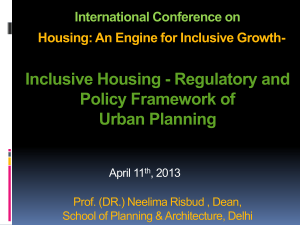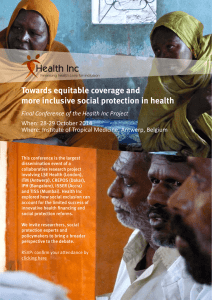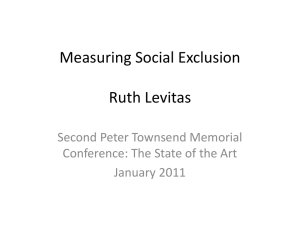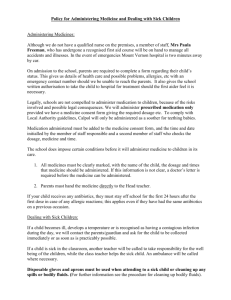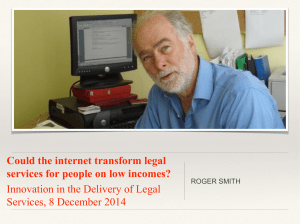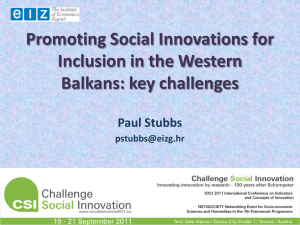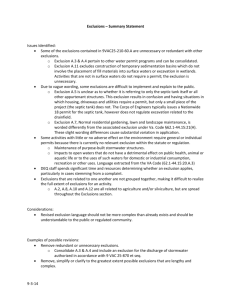240 pysch
advertisement
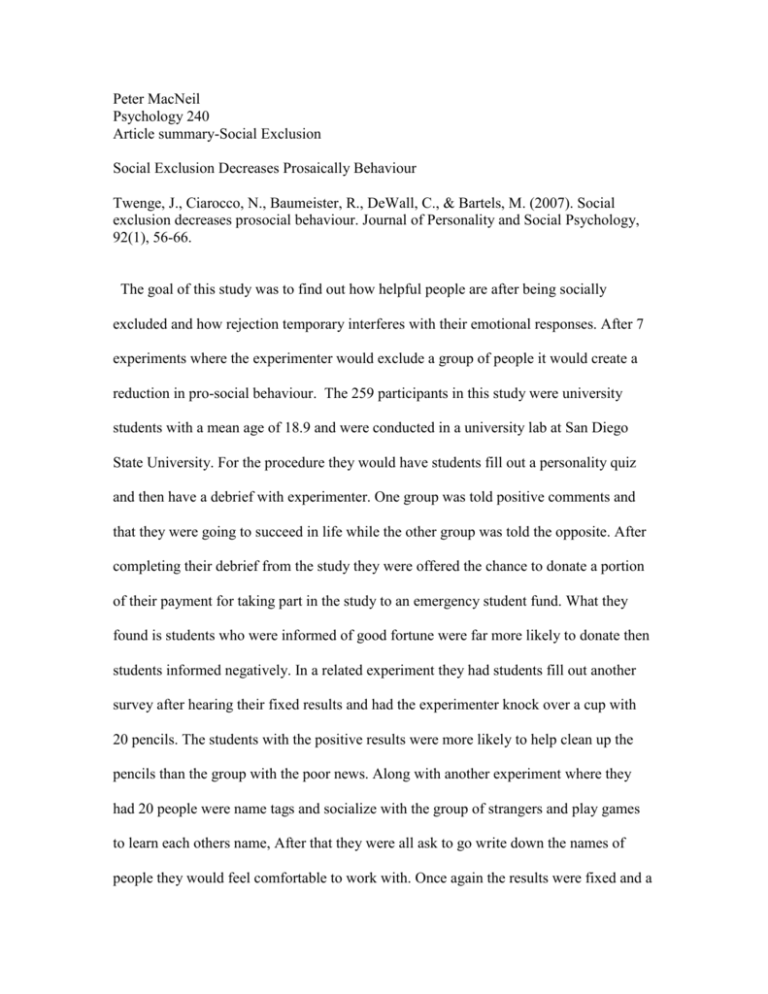
Peter MacNeil Psychology 240 Article summary-Social Exclusion Social Exclusion Decreases Prosaically Behaviour Twenge, J., Ciarocco, N., Baumeister, R., DeWall, C., & Bartels, M. (2007). Social exclusion decreases prosocial behaviour. Journal of Personality and Social Psychology, 92(1), 56-66. The goal of this study was to find out how helpful people are after being socially excluded and how rejection temporary interferes with their emotional responses. After 7 experiments where the experimenter would exclude a group of people it would create a reduction in pro-social behaviour. The 259 participants in this study were university students with a mean age of 18.9 and were conducted in a university lab at San Diego State University. For the procedure they would have students fill out a personality quiz and then have a debrief with experimenter. One group was told positive comments and that they were going to succeed in life while the other group was told the opposite. After completing their debrief from the study they were offered the chance to donate a portion of their payment for taking part in the study to an emergency student fund. What they found is students who were informed of good fortune were far more likely to donate then students informed negatively. In a related experiment they had students fill out another survey after hearing their fixed results and had the experimenter knock over a cup with 20 pencils. The students with the positive results were more likely to help clean up the pencils than the group with the poor news. Along with another experiment where they had 20 people were name tags and socialize with the group of strangers and play games to learn each others name, After that they were all ask to go write down the names of people they would feel comfortable to work with. Once again the results were fixed and a group was told no one wanted to work with them and they were reluctant to volunteer for future studies. The study coveys how social exclusion can create self defeating qualities such as not being helpful and de-motivating pro-social behaviour. Motivations for Prevention or Promotion following Social Exclusion: Being Rejected versus Being Ignored. Molden, D., Lucas, G., Gardner, W., & Dean, K. (2009). Motivations for prevention or promotion following social exclusion: Being rejected versus being ignored. Journal of Personality and Social Psychology, 96(2), 415-431. The goal of this study was to find out how people reacted when being socially excluded by rejection and being ignored. Along with to find out what motives and behaviours occur when participants are put in theses conditions. The individuals partaking in this study were university students from North-western University ranging in age from 17-22 partaking for a credit towards their psychology course. In the experiment they had participants come in believing that they were doing a study on how internet friendships are formed. The one person would sit at a computer and would enter an online chat room with 3 people: themselves and 2 confederates. A question would be posed to start conversation such as “Should smoking be banned in all bars in Illinois?” To simulate rejection which ever position the participant took on the topic the confederates would go against and have scripted responses such as “Are you kidding me? Or “Are you for real?” Then to be ignored, the two confederates would discover they lived in the same apartment complex and have a side conversation and ignore the participant. The individuals that were rejected had thoughts about actions they should have not taken along with having negative emotions as a result of their rejection. The group that was ignored were more likely to think about actions they should have taken and gave them an aware state of eager concern for the missed opportunities to gain social acceptance. This study relates to how social exclusion led to a greater social withdrawal along with a state of anxiety and how rejection can create vigilance.


